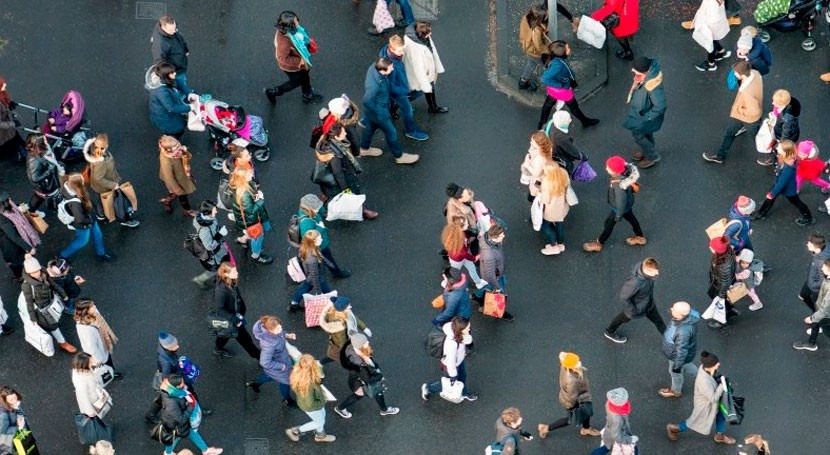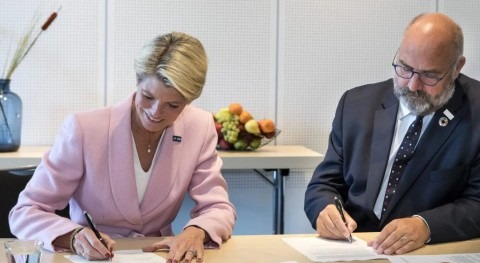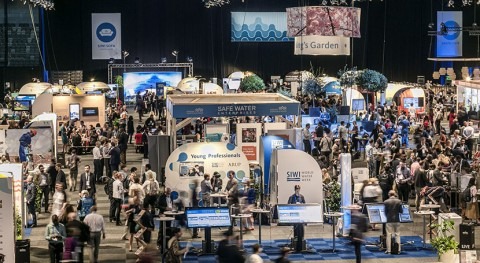Global consumption has risen sharply over several decades, allowing for many to enjoy goods, services and higher standards of living previously unattainable. But the flip side of this is the ever mounting pressure on scarce water resources.
How to strike the right balance is already a hot topic. It will be an even more pressing issue in years to come as the world’s population may reach 10 billion, and both the climate crisis and the ongoing degradation of the environment will continue to worsen.
Current global value chains and trade patterns mean that decisions about consumption and production in one part of the world can have serious and unforeseen consequences in another. To quantify this, the concept of water footprints is increasingly used in order to measure the amount of pressure being exerted on local water resources. Consumers in relatively water rich parts of the world such as Europe can place a considerable burden on water resources in more water-stressed regions through their consumption and travel. Many consumers are still oblivious to this.
In the Netherlands, 95 per cent of the water footprint from consumption is located outside their borders, compared to just 3 per cent in India. Tourists from the Global North put considerably more pressure on water resources in the Global South, since they often use much more water than the local population. There can also be positive effects as an influx of tourists can for example benefit local communities through the provision of better wastewater treatment.
There is an urgent need for both consumers and companies to gain a better understanding of how water plays a role in both consumption and production processes, and this topic will be featured extensively at World Water Week. It is also important to understand the situation for particularly vulnerable groups, who are also at the heart of this year’s theme Water for Society – including all. How are they affected by decisions around consumption and production in countries thousands of kilometers away? The topic will be explored for example in the session entitled Leaving no one behind – the World Water Development Report.
Here is a snapshot of other interesting discourses that will be featured during World Water Week:
What shall we eat? The global shift to more water intensive food habits will be discussed during the Week. What is the responsibility of global food retailers and consumers who buy imported food? The question will be raised in the session Is asparagus to blame? A supply-chain review, where a case study will be presented about asparagus cultivation in Peru.
Do we need all that plastic? With the rise in both population growth and consumption, the problem of waste is an ever pressing problem as already scarce freshwater sources and oceans are affected by the scourge of pollution, especially from plastic. Consumers are becoming increasingly aware of the issues as more and more countries begin to implement bans on certain plastics and companies ramp up their efforts to find sustainable solutions in dealing with waste. This topic will also be highlighted during World Water Week. The role of recycling will be investigated in the session entitled Plan for plastics – the circular solution while other future opportunities will be discussed under the theme of Preventing plastics in our waters: more than banning straws and Innovative Plastic Leakage Action: From source to sea.
How healthy is our medicine? The same characteristics that make pharmaceuticals so important to cure human illnesses can also be dangerous when they end up in the wrong place. The linkage between water and pharmaceuticals is now increasingly recognized and World Water Week will discuss the topic in detail in several sessions.
OECD will launch a report “Pharmaceutical residues in freshwater: hazards and policy” which looks at the effects of residues emitted into freshwater: psychiatric drugs have been found to alter the behaviour of fish, while endocrine disrupting pharmaceuticals can cause reproduction toxicity in fish as well as breast or prostate cancer in humans. This can have detrimental effects on populations relying on fish as their major food staple. Other similar sessions will look at the role of: Emerging pollutants in water: Invisible threats to health and ecosystems and Reducing emissions from antibiotics production: Supply and demand side collaboration.
What can companies do?
The growing number of companies who attend World Water Week have a unique opportunity to learn from leading scientists and other experts about the most pressing water challenges as well as the most promising solutions. Inspirational examples of companies and businesses that have become more financially sustainable through smarter water use will be featured, such as the Sweden Textile Water Initiative’s work showcased under the headline of Monetizing Sustainability in the Fashion and Textile Industry.

















